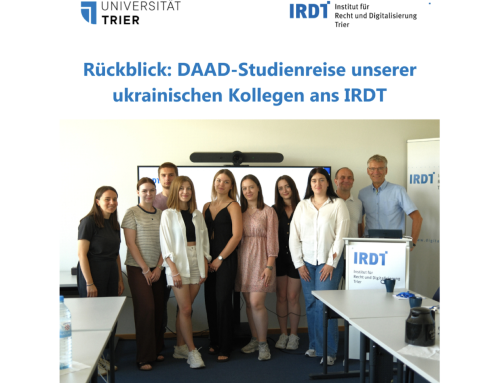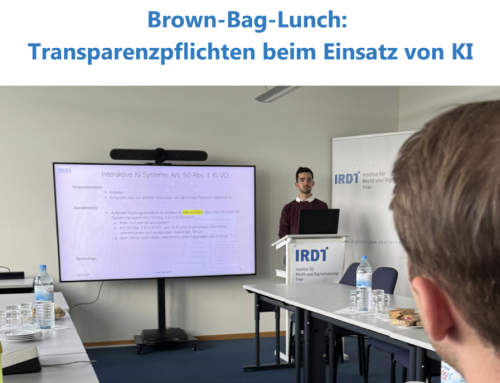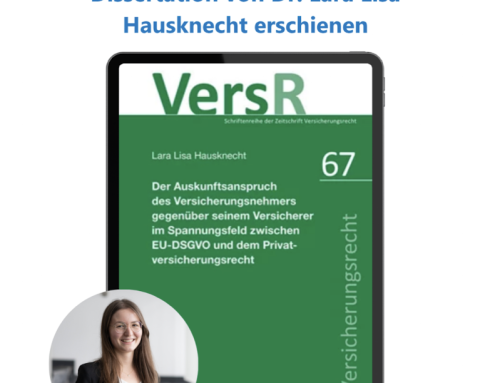On September 26-27, 2024, the Institute for Digital Law Trier (IRDT) hosted an insightful two-day international conference on the intersection of Artificial Intelligence (AI) and Fundamental Rights. Experts from around the world gathered in Trier to discuss the regulatory landscape of AI, particularly through the lens of the EU’s AI Act, which aims to balance innovation with the protection of human rights.
Day 1: Laying the Foundations
The conference began with a warm welcome from Prof. Dr. Antje von Ungern-Sternberg (IRDT) and Prof. Dr. Torsten Mattern, Vice President of the University of Trier. In their opening remarks, they highlighted the importance of addressing AI’s regulatory challenges within the context of fundamental rights, particularly as AI continues to permeate various aspects of society.
The first panel, focusing on the technical foundations of the AI Act, explored the legislative process behind the Act and whether it adequately defines AI from a technical perspective. Irina Orssich from the European Commission (DG Connect) provided a detailed overview of the AI Act’s development, emphasizing its objectives and scope. This was followed by Prof. Dr. Joanna Bryson (Hertie School), who critically assessed whether the legislature’s definition of AI truly captures the complexity and autonomy of AI systems. Her talk stimulated a thought-provoking debate on how legal definitions influence both policy and technological innovation.
After a brief coffee break, the second panel examined the scope of the AI Act and its risk-based regulatory framework. Dr. Patricia García Majado (University of Oviedo) analyzed the types of prohibited AI practices under the Act, offering insights into the ethical considerations behind banning certain AI applications. Following her presentation, Prof. Dr. Tobias Mahler (University of Oslo) discussed high-risk AI systems, detailing the regulatory obligations these systems must meet to ensure compliance with fundamental rights.
Day 2: Navigating Ethical and Global Challenges
The second day opened with a panel dedicated to diligence obligations under the AI Act. Prof. Dr. Herbert Zech, along with Lisa Markschies (Humboldt University of Berlin), explored the critical role of data governance in maintaining ethical AI practices. The discussion emphasized the importance of transparency and accountability in AI’s decision-making processes, especially in high-stakes environments like healthcare and law enforcement.
Following a short break, Dr. Tristan Radtke (TU München) took the stage to address human oversight in AI systems, focusing on how human supervisors can mitigate risks in AI decision-making. His talk was complemented by a response from Isabella Banks (University of Amsterdam), who raised important points about the limits and challenges of human oversight in highly automated AI systems.
The panel on diligence obligations concluded with Assoc. Prof. David Restrepo Amariles (HEC Paris), who presented on the AI Act’s provisions for self-assessment. He examined how self-regulation, as a cost-effective alternative to public certification, could either empower companies or present risks if not properly monitored. His talk sparked a lively discussion on the potential of self-assessment to maintain the balance between innovation and responsibility.
The final panel of the conference, titled “Brussels Effect? The Outside Perspective,” expanded the scope to a global view, analyzing how the EU’s AI Act influences international AI regulation. Prof. Dr. Margaret Hu (William & Mary Law School) offered an in-depth analysis of the US perspective, comparing regulatory approaches and highlighting the challenges of harmonizing AI policies across borders. Prof. Dr. Wang I-Ping (National Taipei University) provided insights into the Asian perspective, focusing on how different AI governance models in Asia reflect varying cultural and political priorities. Dr. Nomalanga Mashinini (University of the Witwatersrand) completed the panel with a discussion on the African perspective, highlighting the unique challenges and opportunities that AI presents for the Global South, particularly in areas of economic development and public governance.





